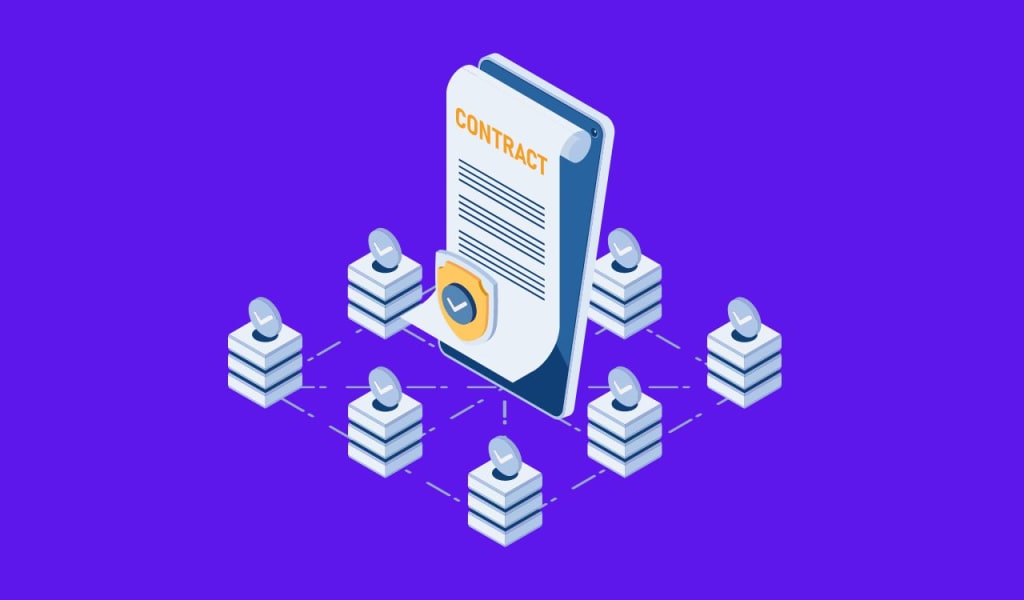Smart Contract Development - Developing Stages
Development Stages of Smart Contract

Smart contracts are self-executing contracts with the terms of the agreement directly written into lines of code. They run on blockchain technology and automate the execution of transactions without the need for a third party. Smart contracts are used for various purposes such as payments, supply chain management, identity verification, and more. Developing smart contracts is a complex process that requires specialized skills and knowledge. In this blog post, we will discuss the different stages of smart contract development.
Stage 1: Defining the Problem
The first stage of smart contract development is defining the problem that the smart contract aims to solve. This involves understanding the business requirements and identifying the areas where smart contracts can be used. It is important to have a clear understanding of the problem to be solved and the expected outcome. The development team needs to collaborate with the stakeholders and understand their requirements to develop a smart contract that meets their needs.
Stage 2: Designing the Smart Contract
Once the problem has been identified, the next stage is to design the smart contract. This stage involves creating the logic of the smart contract, defining the data structures, and designing the user interface. The development team needs to work with the stakeholders to create a design that meets their requirements.
During this stage, the team should also consider the security and scalability of the smart contract. Security is crucial as smart contracts handle sensitive data and valuable assets. The team should consider the possible vulnerabilities and design the smart contract to mitigate them. Scalability is also important as smart contracts should be able to handle a large volume of transactions.
Stage 3: Developing the Smart Contract
The development stage involves writing the code for the smart contract. The code should be written in a programming language that is compatible with the blockchain platform being used. Solidity is the most popular programming language for developing smart contracts on the Ethereum blockchain.
The development team should follow coding best practices and use security measures such as encryption and access control to prevent unauthorized access to the smart contract. The team should also conduct regular testing to ensure that the smart contract is functioning as expected.
Stage 4: Deployment
Once the smart contract has been developed and tested, it is time to deploy it on the blockchain. The deployment process involves uploading the smart contract code to the blockchain platform and making it available to the users. The deployment process should be done carefully to ensure that the smart contract is secure and functional.
Stage 5: Testing and Optimization
After the smart contract has been deployed, it is important to conduct further testing and optimization. This involves testing the smart contract in a live environment to ensure that it is working correctly. The development team should also optimize the smart contract for speed and efficiency to ensure that it can handle a large volume of transactions.
Stage 6: Maintenance and Upgrades
Smart contracts require ongoing maintenance and upgrades to ensure that they remain secure and functional. The development team should monitor the smart contract and address any issues that arise. They should also upgrade the smart contract to incorporate new features or to improve its performance.
Conclusion
Developing a smart contract requires specialized skills and knowledge. The process involves defining the problem, designing the smart contract, developing the code, deploying the smart contract, testing and optimization, and ongoing maintenance and upgrades. Smart contract Development have the potential to revolutionize the way we conduct business by automating transactions and removing the need for intermediaries. As the use of blockchain technology continues to grow, the demand for smart contract developers will continue to increase.
About the Creator
Dean Johns
I'm Dean Johns, CEO of Shalong Pvt Lmt. And also a Leading crypto inverstor over Past 8 Years. Giving Tips & Tricks to all People about Crypto Inverstment who Wants to inverst Your Money on Crypto in Future Days.
Enjoyed the story? Support the Creator.
Subscribe for free to receive all their stories in your feed. You could also pledge your support or give them a one-off tip, letting them know you appreciate their work.






Comments
There are no comments for this story
Be the first to respond and start the conversation.